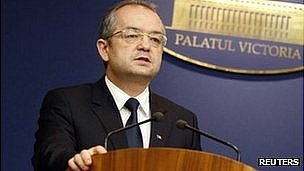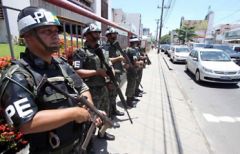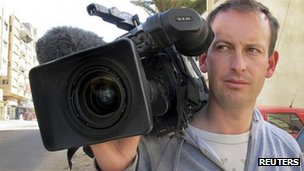Handle With Care, Approach With Caution
In the byline of this New York Times article, a reporter in Damascus remains nameless, a sensible precaution, essential for their protection. However, in the text, every tiny sliver of information imaginable is shared about the activists working behind the scenes, and desperately trying to remain undetected. If their identity is discovered they are in grave danger. The data they have with them at any given moment could endanger hundreds. Whatever regime intelligence cam learn about their circumvention techniques – generously revealed in this article, could place thousands at risk. Reports are already being made about people disappearing, houses being searched. The Syrian regime wants to destroy the opposition, and crush its networks. They are looking for their phones, their computers, their friends. The search will widen to teachers, spiritual and social leaders, colleagues, neighbors, lawyers, and rights defenders.
The New York Times is helping the Syrian regime in it’s quest to suppress by listing tactics, and giving vital clues about how the revolutionaries are organising and communicating. They are sharing this inside information because someone in the opposition gave it to them. I find this situation deeply disturbing. Regime overthrow is not exactly an apprenticeship or career-path where one gradually builds experience so that, by their third or fourth regime they have become expert. We can’t expect these freedom-fighters to know everything they need to know. But we can and should demand that any established publication should use their experience, and apply some kind of ethical standard, to do no harm to their sources. I am not singling out the New York Times by the way, their article just happened to be conveniently available.
In my personal opinion, no amount of media coverage, however beneficial to a cause, is worth the price of safety and security of yourself or your fellow activists. Knowing how to handle and prepare for media interviews, how to negotiate with the press about how your information will be used, and how your identity will be protected, is absolutely essential. To blunder in to an interview unprepared, even star-struck and blinded by the exotic scent of exposure, is inadvisable at best, reckless under most circumstances.
If you are likely to be in a situation where your life or those in contact with you could be in danger and you are going to talk to the media, try these links first.
Web Users Are People, Too
The NYT article also features an observer in academia polishing his reputation for the profitable lecture circuit with a cookie cutter quote about how social media is entirely responsible for shifting the balance of power in Syria. I always imagine that people like him use initial capitals and double-quote marks for the phrase “Social Media”.
In the framework of political activism, the majority of social media relationships are fragile, ethereal constructions between total strangers. The lack of physical contact, the underlying truth that you have never and probably will never see this person in the flesh, could make them somehow less like a real living breathing person. This attribution of otherness might explain how commentators are able to assign responsibility for an event as painful and bloody as regime overthrow to “Social Media”. In using the internet to monitor events around the world, have observers inadvertently or even deliberately coached themselves to dismiss the hundreds of unarmed civilians, even children, bleeding to death, and the tens of thousands chanting and screaming in the streets, just because they are conveniently packaged and delivered on video that can be paused or closed with a mouse-click?
Many of the chants are conveniently translated for the myriad spectators and commentators. The one we hear most in Syria is “The people want to topple the regime”. Note that word. People. It is people and their actions that make change. No one is chanting “FaceBook wants to topple the Regime” or “We Will Tweet Our Way to Freedom!”. Mobile phone calls or SMS messages, encrypted email with links to encrypted files for download are not social media. They are electronic communications, and all of them were established long before the advent of social media. To me, the very big difference is that although most items in the above list can work with, or be shared using, social media, they are primarily regarded and used as both private and personal methods of communication. Something Twitter and FaceBook only imitate. And don’t even get me started on the ability of Twitter applications to use the API to access supposedly private Direct Messages; Twitter being forced (reluctantly?) to share private user data; FaceBook, Flickr, and YouTube – to name just three services – making arbitrary decisions about disabling accounts; or evil regimes hacking FaceBook with apparent ease to identify dissidents.
Iranian Embargo
It seems to me, whenever Syria (and Egypt, Libya, Saudi Arabia, Bahrain, Iraq, etc…) is raised as an issue, it quickly turns into a discussion about Iran. Somehow Iran has become the ultimate trump card for all MENA debate. No one is talking about Syria and it’s complicated relationship with the country next door, Lebanon. No one is talking about what might or might not happen with the Golan Heights. Absolutely no one dares to mention Israel. As I write, we haven’t yet reached the inevitable stage of the “power vacuum” rhetoric. Perhaps some enterprising editors have articles on these topics already in draft, simply waiting for the right moment to explain to us how event “X” in country “Y” … is so much like event “A” in country “B” oh and … “Iran” .. “Al Qaeda” … “Muslim Brotherhood”… etc. Actually, they might be able to recycle some earlier articles.
What is depressingly obvious to me, after 2 long frustrating years of trying to get the media to focus on Iran, is that invoking the Iran card cosily blankets the subject with the same suffocating LACK of attention. Bringing Iran into the discussion has an immediate dampening effect. It’s a lose-lose situation.
Revolutionary Reinvention
There is a Syrian opposition of sorts waiting in the wings. I expect they might have a long wait, since the feedback I got when I asked about them is that they are not held in any regard, in fact many see them as simply a different version of the ruling Ba’ath mafia. Yes, that is reminiscent of another situation in another country, and no, we don’t need to talk about that. Back to Syria. Focus, people.
Some ministers and local leaders in Syria have already begun to resign, crossing the magical line from treacherous perpetrator of evil to opposition supporter in one easy headline. No doubt there are other, more shadowy figures preparing for the perfect time to step in and rescue the “youth” of Syria. Because even though we have lists of the dead and detained showing ages from 7 to 70, I get the very strong impression based on recent experience that somehow this will all be painted over as a “youth” movement. Interviews with trendy 30-somethings battling for freedom via iPhone and laptop is of course the perfect backdrop for this framing operation.
Once the pesky hi-tech revolutionaries have been labelled and tidied away into their social pigeon-hole, the reinvented former enemies can emerge, visible and vocal, forming transitional committees, using their influence to meet with representatives of interested governments and big business. All the while they will be quietly, efficiently, side-lining those people known only through social media – and therefore somehow not-quite-real – using their older, more established political and social circles. One or two social media activists might get thrown shiny crumbs of notoriety; a few invites to speak at social media-driven events perhaps, a few mentions in the press. Enough to keep them busy while the big guns make their decisions.
Misery Mathematics
No one knows when any of this might come about. No one is talking about the going rate for revolution in Syria, where the regime thought they could kill 30,000 people in silent secrecy and return to daily affairs as though nothing happened. That was 30 years ago. What is the regime’s threshold today, is there inflationary pressure to out-perform your last atrocity; do murderous regimes feel compelled to compete on death-toll with natural disasters like Haiti, Indonesia or Japan? Equally important, how much more of this insanity is the world in general willing to stomach? Maybe we need to find an academic to tell us they discovered a social media bloodshed threshold, although I am fairly confident that will only happen with the glorious 3D technicolor social media infographic hindsight common to such pronouncements.
While we wait, the unspoken expectations and comparisons gather and hang over the issue like dark clouds. More deaths than that place, but a slower rate of casualties than some other place. Nothing will ever be as bad as such-and-such. We sit and watch for news, for some sign of positive change, trying not to drown in the downpour of displacement, of rhetorical questions that serve to replace actually giving a damn. “Will Syria be another …?”.
Anti-Social Networks
You likely found this post via Twitter or FaceBook. I suppose you read out of interest, or curiosity perhaps. Apart from the stream of tweets, the articles, the X-rated videos, what else have you seen: are there any petitions demanding international aid, intervention, sanctions against the regime and in support the people of Syria? Would you search for them, sign and share the ones you find, even create one if your search was fruitless?
If you are going to be a user of social media, you might as well make some small effort to be social. If you are going to follow activists as a user of social media, don’t make it a free ride, or fall in the trap of hovering over their posts like a vulture to see what you can pick out of the despair of other people for yourself. Yes, journalists, bloggers, and vanity tweeps, I am looking at you. Revolution should not be a spectator sport. Human misery should not be regarded as a way to put food on your table. Find a way to give back, to play your part. To be human.
 Respected United Nations General Secretary, UN High Commissionaire for Refugees and Respected Foreign Ministers of Countries who Support Human Rights :
Respected United Nations General Secretary, UN High Commissionaire for Refugees and Respected Foreign Ministers of Countries who Support Human Rights :



